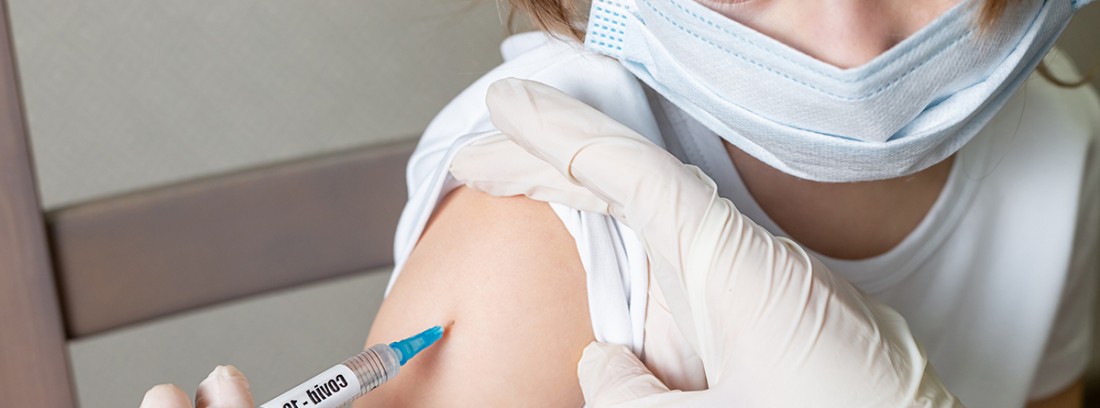COVID-19 vaccination in children under 12 years of age

Vaccine in children
Health authorities international organizations are promoting the indication of vaccinate all children between the ages of 5 and 12, an age group that until now had not received any type of vaccine.
widespread against covid-19 is a critical tool to protect all people, especially those at increased risk of serious illness. The advantage of vaccination is that it minimizes restrictions so that those vaccinated can safely resume many of the activities they did before the pandemic. In some countries, for example, only those vaccinated can go to restaurants or shows. Children five years of age and older can receive an age-appropriate dose of the Pfizer-BioNTech vaccine.
This is a summary of covid-19 vaccines and age:
Authorized forPfizer-BioNTechModernJ & J / Janssen4 years of age or less NONNON 5 to 11 years YES NO 12 to 17 years NONNON 18 years or older YESISY
How does Covid affect children and adolescents?
After the studies carried out in these years of pandemic, covid-19 is usually milder in children relative to adults. This means that children fall ill with less severe symptoms and are admitted to the hospital less. Obviously, some cases can be serious. Complications from covid-19 can be deadly.
Despite these facts, children can:
- Become infected by the virus that causes covid-19.
- Get seriously ill because of covid-19.
- Suffer complications short-term and long-term health outcomes from covid-19.
- Spread covid-19 to other people.
Children with serious underlying illnesses are at increased risk of developing severe covid-19. Children infected with the virus that causes covid-19 can also have serious complications such as multisystem inflammatory syndrome (MIS-C), a complication that causes inflammation of different parts of the body, such as the heart, lungs, kidneys, brain, skin, eyes, or eyes.
Is it advisable to vaccinate children?
Vaccinate children can help protect family members, including siblings who are not vaccine candidates and family members or friends who may be at higher risk of becoming seriously ill if they become infected. We must not forget that it can help prevent children from becoming seriously ill or having serious complications secondary to infection. The vaccine in children could keep schools open and give greater security to participate in extracurricular or group activities, de-escalation measures of contagion little by little.
Are vaccines safe in children and adolescents?
These recommendations are endorsed by clinical trials conducted in recent months. In the case of the US, the FDA granted the Pfizer-BioNTech vaccine emergency authorization for covid-19 for use in children between 5 and 15 years of age and has full approval in those over 16 years of age.
The benefits of vaccination against covid-19 outweigh the known or potential risks. It is important to say that the flu vaccine and the covid-19 vaccine can be given at the same time.
The adverse effects that have been described so far are anecdotal:
- Cases have been reported of (inflammation of the heart muscle) and (inflammation of the outer layer that covers the heart) after administering the Pfizer-BioNTech covid-19 vaccine to children 12 to 17 years of age. These reactions are rare; In one study, the risk of myocarditis after the second dose of Pfizer-BioNTech in the week following vaccination was approximately 54 cases per million doses given to males 12-17 years of age.
- After receiving any type of vaccine, including vaccines against covid-19, it is possible to experience a allergic reaction, even if it is a rare effect.
- The child cannot get covid-19 from receiving the covid-19 vaccine.
- No evidence that covid-19 vaccines pRove fertility problems.
Dosage and administration
Adolescents 12 years and older receive the same dose of the Pfizer-BioNTech covid-19 vaccine that grown ups. The Pfizer-BioNTech vaccine for children 5 to 11 years old has the same active ingredients as the vaccine given to adults and adolescents. But nevertheless, children from 5 to 11 years old receive a dose according to their age equivalent to one-third of the adult dose of the covid-19 vaccine. After receiving the first dose, a second is received three weeks after the first.
Not recommended give pain relievers before vaccination to try to avoid side effects. After a child receives the covid-19 vaccine, they usually wait at the health center for 15 to 30 minutes in case they have a severe allergic reaction and need immediate treatment.
After vaccination the more frequent side effects are:
- pain, redness, and swelling in the arm where the shot was given
- Tiredness, headache, muscle pain, chills, fever, or nausea
These side effects should disappear in a few days and they are signs that the body is carrying out the immune response but there are also some people do not experience any side effects. The pediatrician will be responsible for giving guidelines for the management of minor side effects.
- The international health authorities are promoting the indication to vaccinate all children between 5 and 12 years old, an age group that until now had not received any type of vaccine.
- Vaccinating children can help protect family members, including siblings who are not vaccine candidates and family members or friends who may be at higher risk of becoming seriously ill if they become infected.
- The Pfizer-BioNTech vaccine for children 5 to 11 years old has the same active ingredients as that given to adults and adolescents. However, they receive an age-appropriate dose that is equal to one-third of the adult dose of the covid-19 vaccine.
(Updated at Apr 14 / 2024)